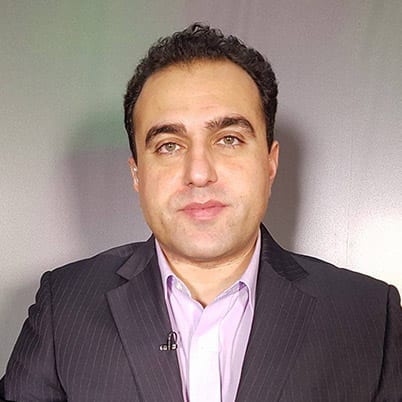The intensifying split within the Gulf Cooperation Council (GCC), as epitomised by the Saudi-led effort to isolate Qatar, has effectively ended (at least for the foreseeable future) Saudi Arabia’s drive to build a credible regional coalition against Iran. In that context, the Saudi-Qatar spat is clearly welcomed by Tehran, at least in private.
Indeed, officially Iran’s response has been, true to form, highly diplomatic and carefully worded to avoid taking sides. This has raised eyebrows not least because greater outreach toward Qatar is regarded by some Iranian analysts as a credible policy in the face of repeated Saudi provocations.
So why doesn’t Iran reach out to Qatar with a view to deepening the regional divide between the Saudi-led conservative bloc and the Qatar-led opposition bloc; why is it failing to capitalise on the Saudi-Qatar split? One obvious answer is that Iranian policy is not necessarily framed in oppositional terms inasmuch as Iran has little to gain from regional tensions. Another obvious answer is that Qatar doesn’t necessarily welcome Iran’s embrace for all too understandable reasons.
Read: Invisible Qataris trapped in no man’s land
However, there are deeper factors at play. For a start, the Islamic Republic does not appear to regard Qatar as a credible long-term regional player. Second, the Qatar dimension goes beyond the Gulf region in so far as Turkey is aligned with Qatar, at least on several key issues, notably Syria. Third, and most important, Iran and Qatar diverge on the issue of foreign forces and the long-term presence of the US military in the region.
Qatar as an enigma
The emergence of Qatar in the past 20 years as a credible Gulf power – independent from Saudi Arabia – has not been appreciated fully by Iranian analysts and strategists. For example, Qatar’s development of credible media and education resources – and the emergence of a distinct worldview that flows from these endeavours – is not taken seriously by Tehran. By the same token, Qatar’s esoteric foreign policy, as evidenced by its interventions in Libya and Syria, tend to be viewed as reckless overreach as opposed to calculated contributions to regional diplomacy.In view of Qatar’s small size and its inherent lack of strategic depth, the fact that Iran doesn’t take Qatar seriously is not an altogether irrational perception. Small countries can achieve big results, though, especially if they focus on niche ideas and markets with a view to satisfying either ideological or economic needs. In the case of Qatar, its impressive media and education resources, in tandem with its support for oppositional movements across the region, is clearly geared to satisfying unmet political and ideological demands.
With regard to Qatar’s political ambitions, or more precisely Qatar’s regional political vision, from an Iranian point of view there is nothing inherently offensive about them, at least not on the face of it. It is worth noting that at the dawn of the so-called Arab Spring back in 2011 Iran welcomed the march of opposition movements across the region and tried to frame the uprisings as part of a broader “Islamic Awakening”.
Iran’s issue appears to be a lack of confidence in Qatar’s ability to lead a regional bloc. Moreover, the elements comprising this bloc do not fill Tehran with confidence. Qatar’s main allies are the Muslim Brotherhood and Turkey, two major power centres which Iran regards as rivals. Whilst this perception can change, and indeed there are multiple potential points of cooperation (for example Tehran and Ankara already cooperate on several regional issues), nevertheless the notion of a cohesive bloc of Qatar, the Muslim Brotherhood and Turkey is troubling for Tehran, not least because of the ideological-cum-sectarian clash with the Iranian-led Axis of Resistance.
Fundamental divide
Iran was quick to send humanitarian supplies to Qatar in a show of solidarity against the Saudi-led economic siege. However, it is worth noting that even before the outbreak of this crisis Iran maintained markedly different relations with Qatar in comparison to other GCC countries. For example, Iran and Qatar are partners in developing a vast offshore gas field known as South Pars/North Dome.
#QatarGate
In terms of core strategic vision and objectives, though, Iranian strategists and policy makers do not make a distinction between Saudi Arabia and Qatar. Iran’s core strategic regional objective is to eject foreign forces from the Gulf with a view to developing a sustainable regional-led security apparatus. Of course, Iran’s GCC rivals are fearful of Iranian domination and view the presence of foreign, in particular American, forces as the best protection against such an outcome.
Qatar currently hosts the largest concentration of US forces in the region at Al-Udeid Airbase. Moreover, Qatar has just signed a $12 billion arms deal with the US centred on the purchase of dozens of F-15 fighter jets, thus underscoring the complexity of regional diplomacy. Whilst US President Donald Trump appears to be backing Saudi Arabia, it would appear that the rest of the policy-makers in Washington are committed firmly to the old imperial tactic of divide and rule.
It remains to be seen whether the Islamic Republic of Iran can create sufficient distance between its core strategic objectives and the inherently pragmatic demands of balance of power diplomacy in order to capitalise fully on GCC divisions. A more realistic attitude toward Qatar could go a long way in advancing Tehran’s desire for a regional security apparatus.
The views expressed in this article belong to the author and do not necessarily reflect the editorial policy of Middle East Monitor.


![Supreme Leader of Iran, Ali Khamenei greets the crowd during the ceremony marking the 28th death anniversary of Ruhollah Khomeini, founder of the Islamic Republic of Iran, in Tehran, Iran on 4 June 2017 [Supreme Leader Press Office/Handout/Anadolu Agency]](https://i0.wp.com/www.middleeastmonitor.com/wp-content/uploads/2017/06/2017_6_5-iran-leader.jpg?fit=1200%2C800&ssl=1)

![Qatar’s Emir Sheikh Tamim Al-Thani [File photo]](https://i0.wp.com/www.middleeastmonitor.com/wp-content/uploads/images/article_images/people/sheikh-tamim-bin-hamad-al-thani-in-turkey-500x333.jpg?resize=500%2C333&ssl=1)








